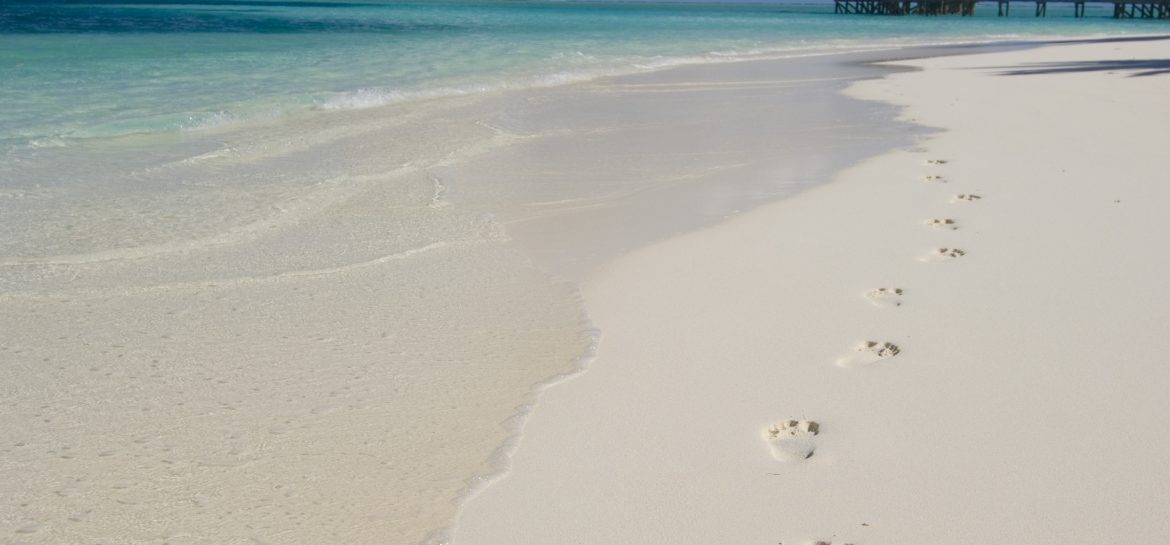
A beautiful South Pacific Island on Vanuatu archipelago will become a cryptocurrency paradise
Vanuatu is a South Pacific Ocean nation made up of 80 islands.
For the past 12 years Anthony Welch and his partner Theresa have been living a Robinson Crusoe life alone on a South Pacific island mostly untouched by humanity.
Welch, a retired property investor, hopes the tranquility will soon be shattered by cryptocurrency investors he is trying to convince to move to his island and form a regulation-free “crypto utopia”.
Under Welch’s plan, the 3,000m sq metre (32,000m sq ft) island, which is part of the Vanuatu archipelago between Australia and Fiji, would be transformed from 90% undisturbed rainforest into a “sustainable smart city”, filled with apartment blocks and offices for cryptocurrency investors from around the world.
Welch, who has renamed the island from its native name Lataro to Satoshi (in a nod to Satoshi Nakamoto the pseudonym of the person who invented bitcoin), has joined forces with cryptocurrency evangelists to create a “blockchain-based democracy” and “the crypto capital of the world”.
However, Welch will first have to unwind his previous marketing of the island as a “wildlife nature reserve” home to rare giant crabs.
In his previous attempt to sell the island for Lataro is described as an ecological paradise “covered in lush rainforests, together with a wonderful array of flora and fauna that’s been here for thousands of years undisturbed and will surely make anyone believe they have gone back in time”.
The Welches have previously petitioned the Vanuatu government to designate the island as a wildlife reserve to “prevent the extinction” of the rare coconut crab.
He said the reserve was “voluntary” and one that he could “dismantle at any time” to allow for the building of the crypto city. EU could suspend Vanuatu visa-free travel over ‘golden passports’ scheme
“We formed the reserve to try to stop them decimating them here to get the numbers back up … the government department for the environment have supported us creating a wildlife refuge here.”
The Satoshi island project is the latest in a series of schemes aimed at bringing cryptocurrency fanatics out from behind the blockchain in their bedrooms and into real-world community in small island states.
The president of Palau, another Pacific island nation about 3,000 miles to the northeast of Vanuatu, has launched plans to become “the world’s first government-backed national stablecoin” by the end of the year.
President Surangel Whipps Jr says the country has partnered with Ripple, a US cryptocurrency firm whose executives have been charged by the Securities and Exchange Commission of stealing $1.3bn worth of the tokens, “to create a national digital currency, providing the citizens of Palau with greater financial access”.
Welch says Satoshi Island will succeed where Cryptoland failed because he and his partners own the island, and claims the development plans have the support of both the Vanuatu government and the local community.
“We’re trying to build a community,” Welch said in an interview over satellite link to the island which currently has no mains electricity, water, phone or internet connection.
“We’re not trying to develop and make a profit.”
Welch took the island off the market and entered into a complex partnership with Hong Kong-based architect James Law, Australian crypto entrepreneur Denys Troyak and Daniel Agius, chief operating officer of the Vanuatu Investment Migration Bureau, an agency that sells Vanuatu citizenship.
“The crypto paradise they want to build is a really cool idea, and a wonderful use of a place we have been able to live on for 12 years,” Welch said.
“The team had been working to find a location for some time, the key issue was trying to find a government that would permit a society to exist on crypto transactions.
Most countries in the world want to collect tax, and they therefore don’t want crypto transactions happening because they can’t monitor what’s happening. Vanuatu has no income taxes of any sort.”
Good luck.


